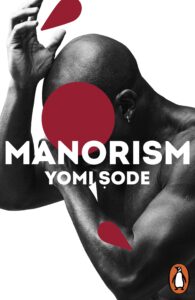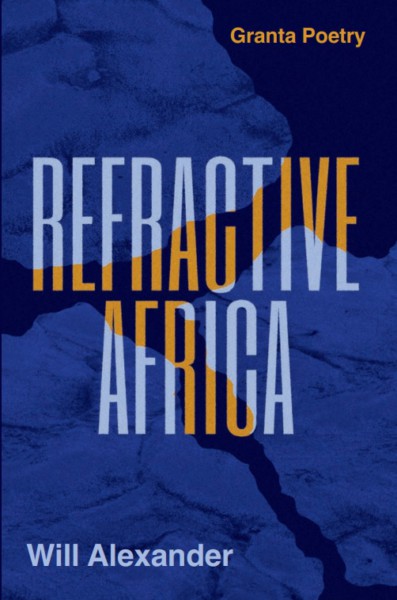Dazzling Refractions of Light and Dark
Art historian Andrew Graham-Dixon writes in his biography of Caravaggio: ‘He had always been an outsider, a troublemaker, a difficult and dangerous man. Yet his art was so compelling, so original, so unforgettable, that people were simply transfixed by it… The fact that he was obliged to invent himself may partly explain his deep originality.’ Graham-Dixon also reminds us that the artist, now lauded for his use of chiaroscuro – the contrast of light and dark within a work – was critized for showing the real world in all its ‘unregenerate ugliness’.
Caravaggio is a major touchstone for poet and theatre maker Yomi Ṣode in his debut collection Manorism. Throughout the book, Sode suggests a deep affinity with the artist: as someone often out of place, trying to find the space to make beauty, fighting to gain the respect he feels he deserves, as someone asking the biggest questions: can an individual feel and visualise the pain for themselves, and for an entire community?
It is Ṣode’s success that Manorism makes these comparisons not fanciful but justified. This is a work of formal experimentation, where lyric essays nestle against play-let structures, in service of a Claudia Rankine-esque determination to bear witness and find frameworks with which we can look at the world properly, fully.
Take the concept of ‘Aneephya’. Ṣode identifies it, in the poem of the same name, as a ‘toxin’:
generally first triggered between the ages of nine and eleven, and continues thereafter into
adulthood and old age. It is known to occur in heightened levels in Black people as a result of
inherited trauma and ‘weathering’ carried down the generations.
To the best of my Googling, I can’t find any reference to the term, which makes me think Ṣode has invented this word as a way of identifying and quantifying the pain, physical and psychic, specific to Black communities. Having the bravery to do this, and then flood the term with his meaning, is brilliant.
The word ‘Manorism’ itself is another of these frameworks: a code for living by, one where the role of pride and respect – how it is earned, what happens when it is not present – is inescapable. Ṣode’s definition, in ‘On Fatherhood: Proximity to Death’, is subtly revealing in what it says about relative power between young men: ‘whether one yields to the other and keeps walking, / or whether we both head-nod to mark a familiarity as skin folk.’ Ṣode’s eye for respect and its absence is acute. In ‘A Sestina, for the Curious Oyinbo’, he details what happens when a woman at a writing retreat asks the tutor ‘Do you want to be white?’:
I can’t believe you asked me that. To which she says: I know I’m white.
Slavery ended years ago. It shouldn’t be my burden. (Jesus!)
When these strands come together, the identification with Caravaggio and the seeking of respect, it’s like fireworks going off. In ‘A Plate of Artichokes’ you live the bristling shame that Ṣode’s speaker feels at being asked to pay in a restaurant before eating (unlike any other diner), a microagression that frankly is a macroaggression:
That evening, I too dreamt of violence. I no longer had the benefit of the doubt to give.
I imagined pulling that waiter’s tie in over a lit candle. I imagined holding him there, his throat
hovering over the flame. I pressed the final digit in.
There is also a wonderfully epigrammatic quality to Ṣode’s writing, such as in ‘Fugitives’: ‘because white skin is white skin everywhere; because privilege, irrespective of time, allows a grace period.’ Or in ‘L’Appel du vide’, where the struggle to live a good life in the face of a hostile society’s causes teeth to be ground while sleeping, knowing that ‘Justice is an autopsy with no apology.’
The core of the book is the sequence ‘Ara Ri (The Body Sees)’. First emerging as a work for stage, it retains a direct and vivid immediacy as it takes you into the maelstrom that is a loved one dying, then its aftermath – the kicker here being that the fact of the illness had been kept secret to begin with. Ṣode is unflinching and fearless as, with disarming candour, he details the generally unspoken feelings that make us feel unworthy, like the desire to run away while the illness progresses in ‘Confessions of a Penitent’ – ‘Most days, I failed. I watched the phone like a hatching bird in my palm. I did not call.’ – and even more so after death, where he tells us of his speaker’s comfort eating and so not fitting into his funeral suit.
Manorism’s real gift to us as readers is, ultimately, Ṣode’s deep and unfailing humanity. This is a book in which love can be found: ‘You are Black and of different colour, but in Jesus’ name, // you shall be located, no matter how hard’ (‘My Mother’s Prayer’).
Another compellingly original artist was the Nigerian-Yoruban writer Amos Tutuola. Very early in his The Palm-Wine Drinkard is the following passage where our hero meets Death:
He took me around his house and his yam garden too, he showed me the skeleton bones of
human beings which he had killed since a century ago and showed me many other things also,
but there I saw that he was using skeleton bones of human-beings as fuel woods and skull heads
of human-beings as his basins, plates and tumblers etc.
It’s an image I’ve come back to a lot while reading Will Alexander’s Refractive Africa, for a number of reasons. One is that Tutuola is an inspiration for Alexander’s thinking. Another is the fact that death and its imagery is hard to escape in Alexander’s book. Mostly, though, I think it’s a bond around the shared ambition of their respective artistic projects: nothing less than a fundamental reshaping of minds.
This sounds grand and forbidding, and at one level it is: Refractive Africa is without a doubt the most ambitious work of poetry I have read in years. Alexander puts it best in his preface: ‘What I attempt to unleash… is an organic emboldening of the African psyche, a postcolonial inner power that allows this poetic text to electrify an energy that the Occident continues to distort.’ This is an attempt to recast – at a cellular level – African memory, African future; to give voice to an energetic resistance to colonialism through language.
The biggest clue here is the title. We know that colonisation is fundamentally an extractive project; whatever other justifications we might wish to dress that truth in – legal systems! railways! trade! – does not change that. But by using the word refractive, Alexander reframes history, reclaims stories – makes us look slant at what has been, and what could be.
And what is poetry if not slant looking to find truth? This, despite its radical appearances, is a deeply poetic book. At a technical level, Alexander’s artistry is jaw-dropping. His lines are short, often no more than a word, yet sprung with an unstoppable energy which pulls and powers you down the page:
Amos
you were “free amongst the dead”
roaming as you roamed
sending signals
empowering your own descriptions via the ohmic[…]
perspicacious as regards the inscrutable you were able to electrify
in-pragmatic noises
incognito habitations
always alive
in the banditry of the bush
electric with ghosts within the oven of the adventure(‘Based on the Bush of Ghosts’)
What Alexander has in spades is a phrasemaking ability of the highest order. In his hands the most unlikely of words – lexicons of praxis and critique – end up being beguiling poetic. He allows sound to make sense that both surprises intellectually and yet feels inevitable, emotionally. And he revels in bringing an energetic dislocation to the form of the lyric, as he writes in ‘Based on the Bush of Ghosts’:
as Yoruba “poetic” power
as you constructed your narrative around an interconnected series of au-
tonomous episodes &
fragments
While two praise poems to Tutuola and Malagasy poet Jean-Joseph Rabearivelo bookend Refractive Africa, the long central piece ‘The Congo’ is the star. It ranges across myth and time to upend what you know, about the land, its history, brutalisation, scars, rebellions, icons. It’s hard not to quote from it liberally, so forgive me but it’s the only way to really convey the scope of thinking and subjects Alexander encompasses. Within the space of a few lines, he can essay the now of the current Democratic Republic of Congo, and what it owes to the past:
so that we cultivate endemic demise
so that we cultivate infected tautology
that brews us ventriloquial diamonds
shattered in such a manner
that we become studded with foreign domination
that degrades
according to wattage from Belgium
or entangled castles in Britain
or psychic swamps in the Vatican
And then take your breath away as he describes one of the results of this: ‘the populace bony / sleeping as thistles over fire’. Or even more brutally: ‘I appear to the Occidental eye as carbon without consequence’. Unsurprisingly the ‘carnivorous paws’ of King Leopold don’t come out of this well.
A parallel: while reading I was put in mind of David Foster Wallace, and there is a kindred-ness here in that Alexander is similarly trying – and achieving – a high octane critical and artistic analysis, and doing so with brio, daring and virtuosity. Refractive Africa is a masterpiece of ferocious, supple brilliance, intellectual and dynamically brilliant with it. How do you describe the horror of the unspeakable? Like this, Alexander suggests: ‘dazzling riot as bliss’.

Manorism by Yomi Ṣode
You can pre-order the book here.

Rishi Dastidar’s second collection of poetry, Saffron Jack, is published in the UK by Nine Arches Press. He is also editor of The Craft: A Guide to Making Poetry Happen in the 21st Century (Nine Arches Press), and co-editor of Too Young, Too Loud, Too Different: Poems from Malika’s Poetry Kitchen (Corsair).
Add your Reply
You must be logged in to post a comment.